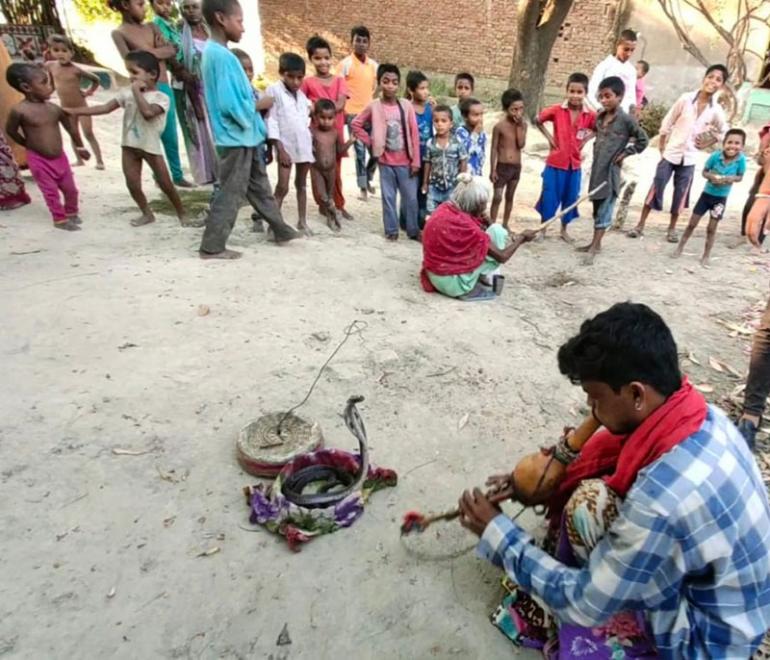Church workers bring aid to India’s poor snake charmers

A group of church workers from the Bosco Educational and Development Society in Mohanlalganj-Lucknow District in Uttar Pradesh, India, has provided much-needed help to a village of “snake charmers.”
People in Sausiran, long considered the “village of snake charmers,” have been reported to be in the brink of starvation.
Most people in the village have lost their livelihood due to the coronavirus pandemic, and its aftermath have added to the misery of the semi-nomadic people, the “snake charmers.”
A team from the Bosco Educational and Development Society of the Don Bosco Technical Institute addressed the problem by distributing food and other relief assistance to the village.
People in rural India are familiar with the dusky men with snakes twisted around their necks and bodies.
The snake charmers play the flute in front of baskets of snakes and go from place to place to entertain people. These small shows have been the villagers’ source of income.
Once renowned for their ability to tame reptiles, the snake charmers are invited by people to catch snakes from their houses.
Locals also depend on them for cures for various ailments, especially snake bites.
The snake charmers have rare medical skills and knowledge that they have traditionally acquired to deal with snake and insect bites. Their medicines are made out of roots and herbs.
They are able to take control of poisonous snakes easily. Snake charming has been their main source of livelihood for years. Snakes are part of their daily life.
Today, these semi-nomadic people of Sausiran said their centuries-old tradition is slowly dying as authorities seek to enforce wildlife protection laws.
They are also battling to try and keep the ancient practice of handling snakes alive in their village.
As the Bosco Educational and Development Society team entered the village, they thought that only some of the villagers would be snake charmers.
“I was astonished to see that the whole village was filled with snake charmers,” said Salesian priest Edward Sacrawat.
“We are all snake charmers and we have no other source of income these days. We are not even having food to eat,” said villager Brajendra Nath.
Radio Veritas Asia (RVA), a media platform of the Catholic Church, aims to share Christ. RVA started in 1969 as a continental Catholic radio station to serve Asian countries in their respective local language, thus earning the tag “the Voice of Asian Christianity.” Responding to the emerging context, RVA embraced media platforms to connect with the global Asian audience via its 21 language websites and various social media platforms.














